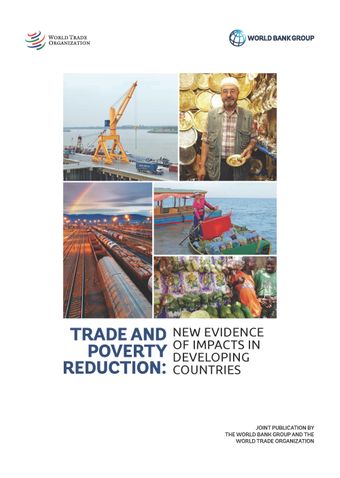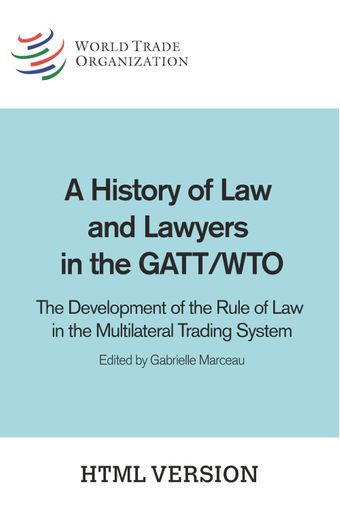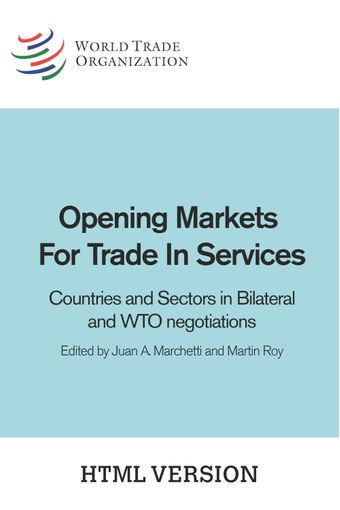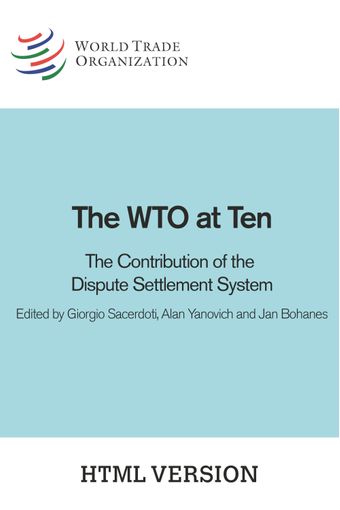- Home
- Collections
- CUP co-publications
CUP co-publications
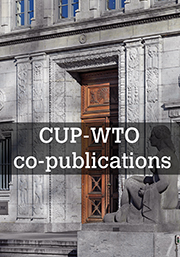
Collection Contents
34 results
-
-
Competition policy and intellectual property in today's global economy
More LessThe fast-evolving relationship between the promotion of welfare-enhancing competition and the balanced protection of intellectual property (IP) rights has attracted the attention of policymakers, analysts and scholars. This interest is inevitable in an environment that lays ever greater emphasis on the management of knowledge and innovation and on mechanisms to ensure that the public derives the expected social and economic benefits from this innovation and the spread of knowledge. This book looks at the positive linkage between IP and competition in jurisdictions around the world, surveying developments and policy issues from an international and comparative perspective. It includes analysis of key doctrinal and policy issues by leading academics and practitioners from around the globe and a cutting-edge survey of related developments across both developed and developing economies. It also situates current policy developments at the national level in the context of multilateral developments, at WIPO, WTO and elsewhere.
-
-
-
A Handbook on the WTO TRIPS Agreement
More LessThis Handbook describes the historical and legal background to the TRIPS Agreement, its role in the WTO and its institutional framework. It reviews the following areas: general provisions and basic principles; copyright and related rights; trademarks; geographical indications; patents; industrial designs, layout-designs, undisclosed information and anti-competitive practices; enforcement of IPRs; dispute settlement in the context of the TRIPS Agreement; TRIPS and public health; and current TRIPS issues. It contains a guide to TRIPS notifications by WTO members and describes how to access the official documentation relating to the TRIPS Agreement and related issues. Furthermore, it includes the legal texts of the TRIPS Agreement and the relevant provisions of the WIPO conventions referred to in it, as well as subsequent relevant WTO instruments and related non-WTO treaties. The new edition covers the public health revision of the Agreement that entered into force in 2017 and provides updates on other recent developments.
-
-
-
Dictionary of Trade Policy Terms, 6th Edition
More LessThe dictionary is an accessible guide to the vocabulary used in trade negotiations. It explains about 3,000 terms and concepts in simple language. Its main emphasis is on the multilateral trading system represented by the agreements under the World Trade Organization (WTO). In addition it covers many of the trade-related activities, outcomes and terms used in other international organizations, such as the United Nations Conference on Trade and Development (UNCTAD), the World Intellectual Property Organization (WIPO), the Food and Agriculture Organization (FAO), Asia-Pacific Economic Cooperation (APEC) and the OECD. The last decade has seen considerable attention devoted to trade and investment facilitation, sustainability and the formation of free-trade areas in all parts of the world. This dictionary allocates generous space to the vocabulary associated with such developments. Additional areas covered include emerging trade issues and issues based particularly on developing-country concerns.
-
-
-
WTO Ministerial Conferences
More LessKey outcomes from WTO Ministerial Conferences since the organization was established in 1995.
-
-
-
Trade and Poverty Reduction
More LessGlobal trade has contributed strongly to reducing poverty but important challenges remain in making trade work for the poorest. This publication presents eight case studies to reveal how trade can help to reduce poverty in developing countries. It focuses on four constraints faced by the extremely poor – namely that they tend to live in rural areas, work in the informal sector, live in fragile and conflict-affected regions and face gender inequality. The case studies identify ways to overcome these constraints, including through the adoption of policies that maximize the contribution of trade to poverty reduction. The studies also highlight the ongoing gaps in data and research that constrain policy-making. The publication is a follow-up to The Role of Trade in Ending Poverty, co-published by the WTO and the World Bank in 2015, which examined the challenges the poor face in benefiting from trade opportunities. The country-specific approach of this new publication complements the global perspective of the previous report.
-
-
-
Tariff Negotiations and Renegotiations under the GATT and the WTO
More LessOver the past seven decades, since the General Agreement on Tariffs and Trade (GATT) was established in 1947, there has been a phenomenal increase in international trade in goods, largely due to sustained efforts by the world’s main trading nations to reduce and eliminate tariff barriers in a multilaterally orchestrated manner. This publication reviews how the procedures and practices relating to tariff negotiations and renegotiations have evolved over this time. In particular, this new edition recounts how negotiations to expand the duty-free coverage of the Information Technology Agreement were concluded and provides an account of tariff renegotiations regarding successive enlargements of the European Union. It also covers tariff negotiations for the accession of a number of new members to the WTO, such as China and Russia. This book will be of particular interest to negotiators, members of government, trade ministries, economists and academics specialized in trade policy.
-
-
-
Trade and Food Standards
More LessCo-published by the World Trade Organization (WTO) and the Food and Agriculture Organization (FAO)
-
-
-
The WTO Agreements
More LessThis publication contains the text of the WTO’s founding agreement, the 1994 Marrakesh Agreement Establishing the World Trade Organization, and its Annexes, including all amendments and additions since its entry into force until September 2017. These include an amendment to the WTO’s intellectual property agreement (TRIPS Agreement) aimed at improving developing countries’ access to medicines, the WTO’s Trade Facilitation Agreement, which entered into force in February 2017, an amendment adopted in July 2017 to extend the frequency of peer review periods under the Trade Policy Review Mechanism as of 2019, and the amended Government Procurement Agreement. This publication updates and replaces The Legal Texts: The Results of the Uruguay Round of Multilateral Trade Negotiations, which was first printed in 1994.
-
-
-
Trade Multilateralism in the 21st Century
More LessAuthors: Alexei Kireyev and Chiedu OsakweTrade multilateralism in the twenty-first-century century faces a serious test as weakness in the global economy and fast-paced technological changes create a challenging environment for world trade. This book examines how an updated and robust, rules-based multilateral framework, anchored in the WTO, remains indispensable to maximizing the benefits of global economic integration and to reviving world trade. By examining recent accessions to the WTO, it reveals how the growing membership of the WTO has helped to support domestic reforms and to strengthen the rules-based framework of the WTO. It argues that the new realities of the twenty-first century require an upgrade to the architecture of the multilateral trading system. By erecting its 'upper floors' on the foundation of existing trade rules, the WTO can continue to adapt to a fast-changing environment and to maximize the benefits brought about by its ever-expanding membership.
-
-
-
A Handbook on the WTO Dispute Settlement System, 2nd Edition
More LessThe WTO dispute settlement system has become one of the most dynamic, effective and successful international dispute settlement systems in the world over the past twenty years. This second edition of A Handbook on the WTO Dispute Settlement System has been compiled by the dispute settlement lawyers of the WTO Secretariat with a view to providing a practice-oriented account of the system. In addition to describing the existing rules and procedures, this accessibly written handbook explains how those rules and procedures have been interpreted by dispute settlement panels and the Appellate Body, and how they have evolved over time. The handbook provides practical information to help various audiences understand the day-to-day operation of the WTO dispute settlement system.
-
-
-
African Perspectives on Trade and the WTO
More LessTwenty-first century Africa is in a process of economic transformation, but challenges remain in areas such as structural reform, governance, commodity pricing and geopolitics. This book looks into key questions facing the continent, such as how Africa can achieve deeper integration into the rules-based multilateral trading system and the global economy. It provides a range of perspectives on the future of the multilateral trading system and Africa's participation in global trade and underlines the supportive roles that can be played by multilateral and regional institutions during such a rapid and uncertain transition. This volume is based on contributions to the Fourth China Round Table on WTO Accessions and the Multilateral Trading System, which took place just before the WTO's Tenth Ministerial Conference in Nairobi in December 2015.
-
-
-
Regional Trade Agreements and the Multilateral Trading System
More LessBy: Rohini AcharyaThis volume contains a collection of studies examining trade-related issues negotiated in regional trade agreements (RTAs) and how RTAs are related to the WTO's rules. While previous work has focused on subsets of RTAs, these studies are based on what is probably the largest dataset used to date, and highlight key issues that have been negotiated in all RTAs notified to the General Agreement on Tariffs and Trade (GATT) and the World Trade Organization (WTO). New rules within RTAs are compared to rules agreed upon by WTO members. The extent of their divergences and the potential implications for parties to RTAs, as well as for WTO members that are not parties to RTAs, are examined. This volume makes an important contribution to the current debate on the role of the WTO in regulating international trade and how WTO rules relate to new rules being developed by RTAs.
-
-
-
WTO Accessions and Trade Multilateralism
More LessAuthors: Uri Dadush, Chiedu Osakwe and Jan BohamesTrois questions importantes seront déterminantes pour l'avenir de l'OMC: le règlement des différends, les négociations et l'intégration régionale. Le règlement des différends est généralement considéré comme l'un des succès majeurs de l'OMC durant ses dix premières années d'existence. La conclusion des négociations du Cycle de Doha est l'un de ses principaux défis. L'intégration régionale est désormais au premier plan du débat alors que les accords régionaux prolifèrent et que les décideurs et les universitaires prennent la mesure de leur incidence sur le système commercial multilatéral. Ces questions, et leur interaction, sont traitées par d'éminents spécialistes et professionnels du droit commercial international originaires d'Amérique du Nord, d'Europe et de la région Asie Pacifique. En outre, des sections spécifiques sont consacrées à la région Asie Pacifique, à sa participation au règlement des différends et aux négociations dans le cadre de l'OMC, et aux tendances récentes à une plus grande intégration régionale.AE1:AE10
-
-
-
A History of Law and Lawyers in the GATT/WTO
More LessHow did a treaty that emerged in the aftermath of the Second World War, and barely survived its early years, evolve into one of the most influential organisations in international law? This unique book brings together original contributions from an unprecedented number of eminent current and former GATT and WTO staff members, including many current and former Appellate Body members, to trace the history of law and lawyers in the GATT/WTO and explore how the nature of legal work has evolved over the institution's sixty-year history. In doing so, it paints a fascinating portrait of the development of the rule of law in the multilateral trading system, and allows some of the most important personalities in GATT and WTO history to share their stories and reflect on the WTO's remarkable journey from a 'provisionally applied treaty' to an international organisation defined by its commitment to the rule of law.
-
-
-
WTO Appellate Body Repertory of Reports and Awards, 1995–2013, 5th edition
More LessTrade multilateralism in the twenty-first-century century faces a serious test as weakness in the global economy and fast-paced technological changes create a challenging environment for world trade. This book examines how an updated and robust, rules-based multilateral framework, anchored in the WTO, remains indispensable to maximizing the benefits of global economic integration and to reviving world trade. By examining recent accessions to the WTO, it reveals how the growing membership of the WTO has helped to support domestic reforms and to strengthen the rules-based framework of the WTO. It argues that the new realities of the twenty-first century require an upgrade to the architecture of the multilateral trading system. By erecting its 'upper floors' on the foundation of existing trade rules, the WTO can continue to adapt to a fast-changing environment and to maximize the benefits brought about by its ever-expanding membership.
-
-
-
A Handbook on the WTO TRIPS Agreement
More LessAuthors: Antony Taubman, Hannu Wager and Jayashree WatalThis handbook describes the historical and legal background to the TRIPS Agreement, its role in the WTO and its institutional framework and reviews the following areas: general provisions and basic principles; copyright and related rights; trademarks; geographical indications; patents; industrial designs, layout-designs, undisclosed information and anti-competitive practices; enforcement of IPRs; dispute settlement in the context of the TRIPS Agreement; TRIPS and public health; and current TRIPS issues. It contains a guide to TRIPS notifications by WTO members and describes how to access and make use of the official documentation relating to the TRIPS Agreement and related issues. Furthermore, it includes the legal texts of the TRIPS Agreement and the relevant provisions of the WIPO conventions referred to in it, as well as subsequent relevant WTO instruments.
-
-
-
The WTO Regime on Government Procurement
More LessAuthors: Sue Arrowsmith and Robert D. AndersonOriginally an important but relatively obscure plurilateral instrument, the WTO Agreement on Government Procurement (GPA) is now becoming a pillar of the WTO system as a result of important developments since the Uruguay Round. This collection examines the issues and challenges that this raises for the GPA, as well as future prospects for addressing government procurement at a multilateral level. Coverage includes issues relating to pending accessions to the GPA, particularly those of developing countries with a large state sector such as China; the revised (provisionally agreed) GPA text of 2006, including provisions on electronic procurement and Special and Differential Treatment for Developing Countries; and procurement provisions in regional trade agreements and their significance for the multilateral system. Attention is also given to emerging issues, especially those concerning environmental, social and SME policy; competition law; and the implications of the recent economic crisis.
-
-
-
A Handbook on the WTO Customs Valuation Agreement
More LessAuthors: Sheri Rosenow and Brian O'SheaThis guide to the WTO Customs Valuation Agreement is based on the authors' experiences of teaching its finer points to customs officials and policy-makers around the world. Covering the methods of valuation and the provisions on enforcement, implementation and dispute settlement, the authors give practical examples, explain interpretative decisions of national and international customs bodies, and analyse the history of its negotiation. Written as a learning tool, it helps both new and experienced policy-makers, customs officials, importers and exporters to gain a deeper understanding of the Agreement's function and aims.
-
-
-
Governments, Non-State Actors and Trade Policy-Making
More LessBy: Antony TaubmanOne of the most pressing issues confronting the multilateral trade system is the challenge posed by the rapid proliferation of preferential trade agreements. Plenty has been written about why governments might choose to negotiate preferentially or multilaterally, but until now it has been written almost exclusively from the perspective of governments. We know very little about how non-state actors view this issue of ‘forum choice', nor how they position themselves to influence choices by governments about whether to emphasize PTAs or the WTO. This book addresses that issue squarely through case studies of trade policy-making and forum choice in eight developing countries: Chile, Colombia, Mexico, South Africa, Kenya, Jordan, Indonesia and Thailand. The case studies are based on original research by the authors, including interviews with state and non-state actors involved in the trade policy-making process in the eight countries of this study.
-
-
-
Regional Rules on the Global Trading System
More LessAuthors: Antoni Estevadeordal, Kati Suominen and Robert TehThe proliferation of regional trade agreements (RTAs) over the past two decades has highlighted the need to look closely at the potential conflicts between regional and WTO rules or disciplines. A major obstacle to advancing understanding of RTAs is the absence of detailed information about their contents. This has limited the debate between those who view RTAs as discriminatory instruments hostage to protectionist interests and those who see them as conducive to multilateral trade opening. This book provides detailed analysis of RTA rules in six key areas - market access, technical barriers to trade, contingent protection, investment, services and competition policy - across dozens of the main RTAs in the world. The analysis helps to provide new insights into the interplay between regional and multilateral trade rules, advances understanding of the economic effects of RTAs and contributes to the discussion on how to deal with the burgeoning number of RTAs.
-
-
-
Domestic regulation of retail food distribution services in Israel: The missing link between food prices and social protest
More LessAuthors: Tomer BroudeThis chapter provides a case study tracing the impact of domestic regulation on market structure in the retail distribution services sector and its ultimate effects on consumer food prices. Taking Israel, a small and relatively liberalized Organisation for Economic Co-operation and Development (OECD) economy, as an example, our research investigates whether market concentration and the absence of international competition can be attributed to domestic regulation. We place this discussion in the context of recent consumer-led social protest against the rising cost of food in Israel.
-
-
-
WTO Domestic Regulation and Services Trade
More LessAuthors: Aik Hoe Lim and Bart De MeesterDomestic regulation of services sectors has a significant impact on services trade liberalization, which is why General Agreement on Trade in Services (GATS) disciplines are negotiated in the WTO. With the help of analyses and case-studies from academics, regulators and trade experts, this book explores the scope and limits of WTO legal principles to promote domestic regulatory reform. Case-studies discuss country-specific challenges and experiences of regulating important service sectors, such as finance, telecommunications, distribution, legal, education, health, postal and logistics services, as well as the role of regulatory impact assessments. The findings will interest trade officials, policy-makers, regulators, think tanks and businesses concerned with the implications of domestic regulation on access to services markets, and with the opportunities for formulating trade disciplines in this area. It is also a useful resource for academics and students researching regulatory approaches and practices in services sectors.
-
-
-
Multilateralizing Regionalism
More LessAuthors: Richard Baldwin and Patrick LowRegional trade agreements (RTAs) have proliferated around the world in the past two decades, and now nearly all members of the WTO are party to at least one. Besides tariffs and rules of origin regulating trade in goods, many RTAs now include provisions on services, investments, technical barriers to trade and competition rules, as well as a host of issues not directly related to trade. The geographic reach of RTAs is expanding, with transcontinental agreements spreading forcefully alongside intra-regional agreements. ‘Multilateralizing Regionalism’ was the title of a major conference held from 10–12 September 2007 at the WTO in Geneva. Brought together in this publication, the conference papers achieve two things. First, they marshall detailed, new empirical work on the nature of the ‘Spaghetti Bowl’ and the problems it poses for the multilateral trade system. Second, they contribute fresh and creative thinking on how to ‘tame the tangle’ of regional trade agreements.
-
-
-
Opening Markets for International Trade in Services
More LessAuthors: Juan A. Marchetti and Martin RoyA unique comparison of how service trade negotiations have evolved on the regional/bilateral level and at the WTO.
-
-
-
Risk Assessment in the International Food Safety Policy Arena
More LessTwo institutions provide multilateral venues for countries to discuss food safety measures at the international level: the Codex Alimentarius Commission (Codex) and the World Trade Organization. Both institutions encourage their members to base food safety standards on scientific evidence. In this paper we provide a description of how food safety related scientific evidence is generated and how it is used in the context of risk assessment for international standard-setting at CODEX and in WTO trade disputes. In particular, we discuss the processes leading to policy conclusions on the basis of scientific evidence, with a focus on the interactions involved between private and public sector actors and those between “scientific experts” and others. We identify weaknesses in the current institutional set-up and provide suggestions on how to improve the interaction between different players at the national and international level so as to strengthen the existing system and increase its cost efficiency.
-
-
-
A Handbook on Accession to the WTO
More LessThe Handbook provides the first detailed explanation and analysis of the process whereby governments become Members of the WTO. The WTO Agreement, which came into force on 1 January, 1995, provides few details on how this process is to take place. Consequently, the steps in the detailed negotiations leading up to access have evolved through the actual negotiations for governments which have become Members of the WTO since 1995. This handbook is unique in providing an account of how the process evolved and in offering details on the process as it is now applied. Moreover, the input of the WTO Secretariat into the preparation of the guide provides information not available until now to anyone outside the Secretariat. The Secretariat has supported production of this handbook in the hope it will serve as a useful source of reference for officials from acceding governments, WTO Members, academia, and the general public.
-
-
-
Dictionary of Trade Policy Terms, 5th edition
More LessThis is an accessible guide to the vocabulary used in trade negotiations. It explains about 2,500 terms and concepts in simple language. Its main emphasis is on the multilateral trading system represented by the agreements under the World Trade Organization (WTO). In addition it covers many of the trade-related activities, outcomes and terms used in other international organizations, such as the United Nations Conference on Trade and Development (UNCTAD), the World Intellectual Property Organization (WIPO), the Food and Agriculture Organization (FAO) and the OECD. The last five years have seen a rapid spread in the formation of free-trade areas in all parts of the world. This dictionary allocates generous space to the vocabulary associated with such agreements. It offers clear explanations, for example, of the concepts used in the administration of preferential rules of origin. Additional areas covered include emerging trade issues and issues based particularly on developing-country concerns.
-
-
-
The WTO in the Twenty-First Century
More LessAuthors: Yasuhei Taniguchi, Alan Yanovich and Jan BohamesTrois questions importantes seront déterminantes pour l'avenir de l'OMC: le règlement des différends, les négociations et l'intégration régionale. Le règlement des différends est généralement considéré comme l'un des succès majeurs de l'OMC durant ses dix premières années d'existence. La conclusion des négociations du Cycle de Doha est l'un de ses principaux défis. L'intégration régionale est désormais au premier plan du débat alors que les accords régionaux prolifèrent et que les décideurs et les universitaires prennent la mesure de leur incidence sur le système commercial multilatéral. Ces questions, et leur interaction, sont traitées par d'éminents spécialistes et professionnels du droit commercial international originaires d'Amérique du Nord, d'Europe et de la région Asie Pacifique. En outre, des sections spécifiques sont consacrées à la région Asie Pacifique, à sa participation au règlement des différends et aux négociations dans le cadre de l'OMC, et aux tendances récentes à une plus grande intégration régionale.AE1:AE10
-
-
-
The WTO at Ten
More LessAuthors: Giorgio Sacerdoti, Alan Yanovich and Jan BohanesBringing together articles by some of the leading policy-makers, including previous WTO Director-Generals, practitioners, scholars of international trade law, government officials, international civil servants, Members of the WTO Appellate Body, and judges from a number of international tribunals, this volume assesses the dispute settlement system during the first ten years of the World Trade Organization. It examines the relationship and balance between political governance and dispute settlement; the functioning of the dispute settlement procedures and various reform proposals; the contribution of the Appellate Body to the development of international trade law; and treaty interpretation in a number of international dispute settlement fora such as the WTO, the International Court of Justice, the European Court of Justice, and the Tribunal for the Law of the Sea. The book has its origins in a series of events commemorating the tenth anniversary of the creation of the WTO dispute settlement system and the Appellate Body.
-
-
-
The First Ten Years of the WTO
More LessBy:This book was commissioned by the World Trade Organization (WTO) as a factual account of the first decade of its existence. It aims to cover the principal activities of the WTO as the successor to GATT and the steps taken to establish a global trading system. Peter Gallagher, the author, is an independent trade analyst and consultant, who records what might be regarded as the WTO's main achievements as well as describing the controversies that have arisen in its first ten years. A useful reference book for policy makers, journalists, members of trade delegations and for everyone who requires a detailed understanding of the workings of the WTO.
-
-
-
Key Issues in WTO Dispute Settlement
More LessAuthors: Rufus Yerxa and Bruce WilsonThis book examines aspects of the operation of the WTO dispute settlement system during the first ten years of the WTO. It covers a representative cross-section of the issues and situations WTO Members have dealt with under the Dispute Settlement Understanding. The book is unique in that it includes contributions from virtually the entire gamut of actors involved in the day-to-day operation of the WTO dispute settlement system: Member government representatives, private lawyers who litigate on behalf of Member governments in the system, Appellate Body members, Appellate Body Secretariat staff, and WTO Secretariat staff. It also includes contributions from several academics who closely follow and carefully scrutinize all that goes on within the system. It therefore provides fascinating insights into how the system has operated in practice, and how the lessons of the first decade can be applied to make the system even more successful in the years to come.
-
-
-
The WTO Dispute Settlement Procedures, 3rd Edition
More LessThe third edition of The WTO Dispute Settlement Procedures collects together the treaty texts, decisions and agreed practices relating to the procedures that apply in the settlement of WTO disputes. It affords ready answers to technical questions relating to matters such as: how disputes are initiated and conducted, including at the appellate stage; what deadlines apply and how to calculate them; what rules of conduct bind individuals involved in WTO dispute settlement; and what rules of procedure apply to meetings of the Dispute Settlement Body. This highly practical work, which includes cross-references and a subject index, will prove invaluable to anyone working in WTO dispute settlement, including lawyers, civil servants working in the field of trade, economists, academics and students. This edition has been fully updated to take account of revised rules and procedures.
-
-
-
A Handbook on the WTO Dispute Settlement System
More LessBy: Antony TaubmanThe primary purpose of this training guide is to explain the WTO dispute settlement system to an interested person with little or no knowledge of how this system functions. However, with its detailed content, it could also serve as a very useful “handbook” to experienced practitioners of WTO Law. It explains the historic evolution of the current system and explores the practices that have arisen in its operation since its entry into force on 1 January 1995.
-
-
-
A Handbook on Anti-Dumping Investigations
More LessAuthors: Judith Czako, Johann Human and Jorge MirandaA key guide to the intricacies of anti-dumping proceedings
-





